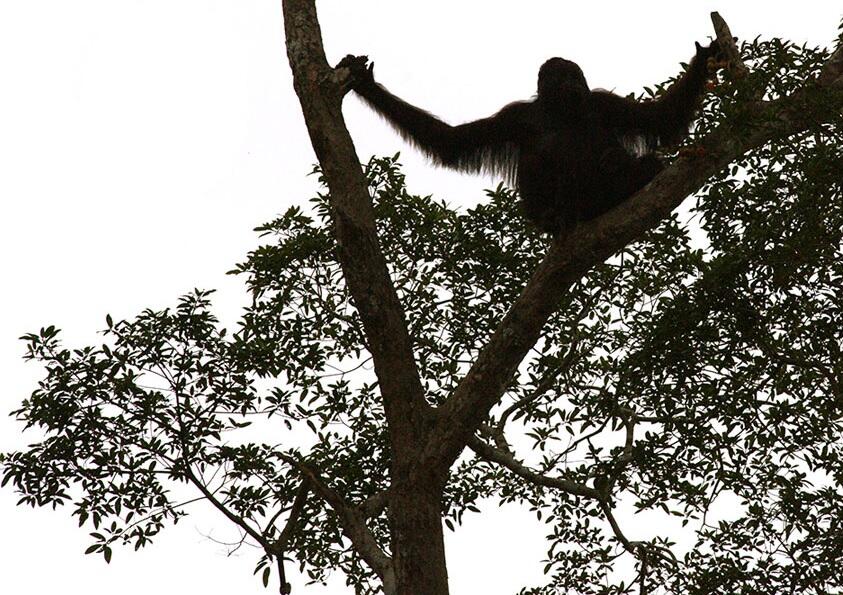The Arcus Foundation, a global foundation promoting respect for diversity among peoples and in nature, today announced the release of State of the Apes: Industrial Agriculture, the second in a series of global reports examining the threats and solutions associated with industrial agriculture through the lens of ape conservation. The foundation made the announcement at the Global Landscapes Forum, held in Paris with cooperation with a range of United Nations and non-governmental organizations.
The first installment in the series, State of the Apes: Extractive Industries and Ape Conservation, was published last year – as is the case for this edition – in partnership with Cambridge University Press. That report included a case study examining threats of oil extraction in Africa’s Virunga National Park, featured in the Oscar-nominated documentary Virunga that premiered at the Tribeca Film Festival last year.
As threats to conservation are increasingly driven by economic development, the State of the Apes series presents an objective and rigorous analysis of critical ape conservation issues and highlights opportunities for reconciliation and constructive engagement with industry through partnerships, solutions and compromises that support the goals and societal value of both industry and biodiversity conservation.
Through research and analysis, highlighted by case studies and best practices, the reports present a comprehensive and holistic overview of how industries such as industrial agriculture inter-relate and play a role in the current and future status and welfare of all apes and people living in or near ape habitats.
“State of the Apes: Industrial Agriculture aims to stimulate informed debate among decision makers about the urgent need for new approaches to addressing escalating tensions between economic development and conservation efforts,” said Annette Lanjouw, Vice President of Strategic Initiatives and the Great Apes Program. “The few landscapes in which today’s apes live – along with many other critical species – all have great economic value to humans. Our intent
with this series of reports is to provide a body of data and research to support industry leaders, policymakers, and conservationists in charting a new course that preserves the biodiversity upon which the well-being of all the world’s human and non-human animals depends.”
State of the Apes: Industrial Agriculture draws upon commissioned contributions from experts in industry, civil society and academia. This new edition presents original research and analysis, topical case studies and emerging best practice from a range of key stakeholders to examine the relationship between ape conservation and industrial agriculture, shedding light on the drivers behind agricultural expansion, land investment, governance challenges and land use. Both volumes to date are edited by Helga Rainer, Alison White and Annette Lanjouw and published by Cambridge University Press with support from Arcus.
The new report will be available from Amazon.com and from Cambridge University Press, the volume’s publisher. Arcus has already launched www.stateoftheapes.com, a site devoted to exploration of the issues and findings from the publication.











